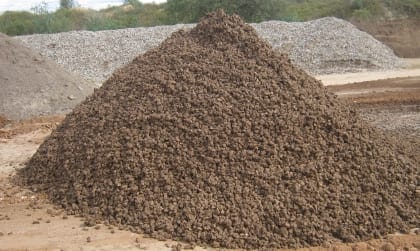Your mini basket



Urban engineering now demands innovative solutions to adapt to changing environmental conditions, including increasingly wet winters and hotter summers impacting urban areas. To address these challenges and enhance modern town and city planning, the adoption of sustainable technologies that integrate with both new and ageing urban infrastructures is crucial.
One such breakthrough is CU-Structural Tree Soil, developed by Cornell University. This material is essential for managing stormwater runoff and mitigating the urban heat island effect by supporting the growth of long-lived, sustainable urban trees. CU-Soil’s design allows it to be compacted according to pavement requirements while promoting healthy root growth, minimising pavement damage. Combined with permeable paving options, like resin-bound stone or porous asphalt, it facilitates the creation of water reservoirs within tree pits. This innovation not only eases the load on existing stormwater systems but also ensures the gradual release of filtered rainwater back into the environment, offering a robust solution for urban sustainability challenges.
Embrace the Future of Urban Greening with CU Soils
In the heart of urban development, where concrete meets the sky, CU Soils emerge as a beacon of sustainability, promising to redefine our interaction with nature. This innovative solution, born from the collaboration of experts, paves the way for healthier urban trees, improved environmental resilience, and a greener tomorrow.
Applications and Composition
CU Soils are engineered to support urban tree growth within the challenging confines of paved environments. Crafted from a blend of highly porous materials, they facilitate water and air movement, crucial for root development. This specialized medium comprises natural stones, soil, and organic matter, optimized to meet the rigorous demands of urban settings.
Advantages and Nature-Based Solutions
The brilliance of CU Soils lies in their ability to merge performance with sustainability. They significantly reduce surface runoff, combat urban heat island effects, and enhance biodiversity in city landscapes. As a nature-based solution, CU Soils leverage the inherent capabilities of ecosystems, promoting a harmonious balance between urban development and environmental stewardship.
Consequences of Overlooking CU Soils
Neglecting the use of CU Soils in urban pavements can lead to detrimental effects, including compromised tree health, increased flooding risks, and exacerbated urban heat islands. Traditional paving solutions often restrict root growth, leading to shorter lifespans for urban trees and diminished green cover benefits.
Alternatives and Comparative Analysis
While alternatives like traditional tree pits or less specialized soils exist, they fall short in terms of sustainability and effectiveness. CU Soils uniquely address the multifaceted challenges of urban greening, outperforming alternatives by creating a conducive environment for tree roots without compromising pavement integrity.
Enhancing Tree Health
By providing an ideal rooting environment, CU Soils ensure trees can reach their full potential, contributing to urban canopy cover, air quality improvement, and carbon sequestration. The use of this soil medium results in healthier, more resilient urban trees, capable of thriving despite the harsh conditions of urban landscapes.
Interesting Facts
Did you know that CU Soils can significantly increase the lifespan of urban trees, making our cities greener for generations to come? Their unique composition not only supports robust tree growth but also plays a critical role in water management, filtering pollutants, and recharging groundwater supplies.
For those looking to enhance urban green spaces, CU Soils represent a forward-thinking choice, embodying the principles of sustainability and resilience. As cities continue to grow, the integration of CU Soils in urban planning offers a path toward greener, more livable communities.
